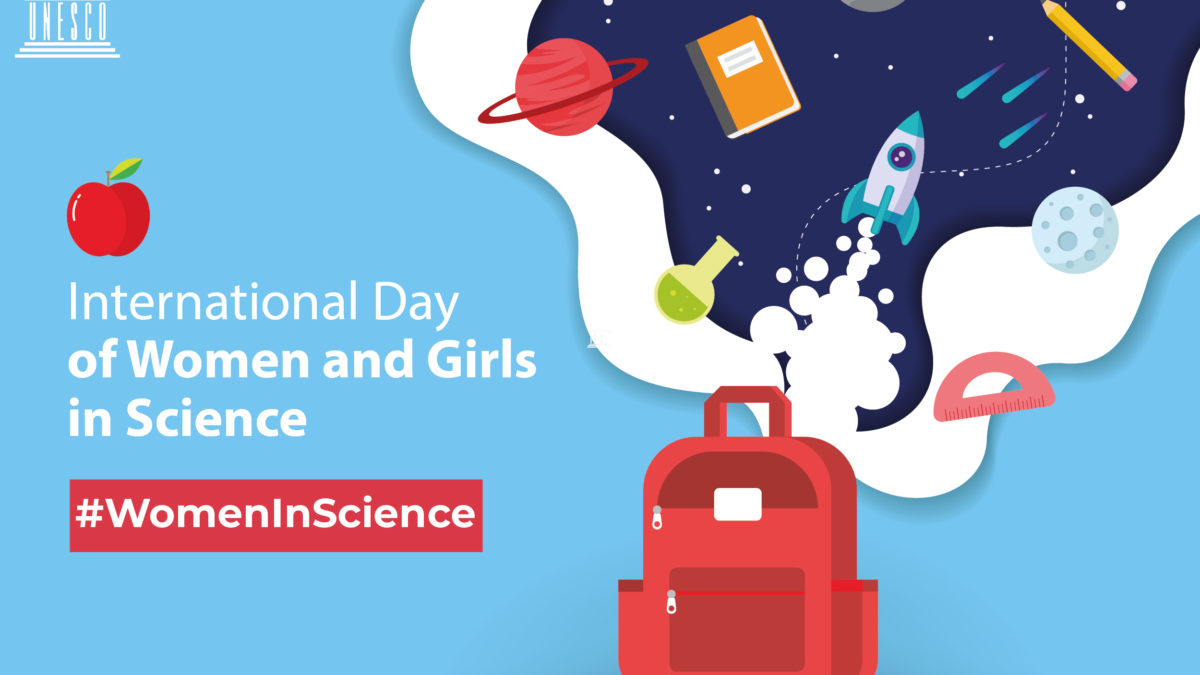Less than 30 per cent of researchers worldwide are women
On 22 December 2015, the General Assembly decided to establish an annual International Day to recognize the critical role women and girls play in science and technology, through Resolution A/RES/70/212. The International Day of Women and Girls in Science, celebrated on 11 February, is implemented by UNESCO and UN-Women, in collaboration institutions and civil society partners that aim to promote women and girls in science. This Day is an opportunity to promote full and equal access to and participation in science for women and girls. – Unesco
Science and gender equality are both vital for the achievement of the internationally agreed development goals, including the 2030 Agenda for Sustainable Development. Over the past 15 years, the global community has made a lot of effort in inspiring and engaging women and girls in science. Yet women and girls continue to be excluded from participating fully in science. At present, less than 30 per cent of researchers worldwide are women. According to UNESCO data (2014 – 2016), only around 30 per cent of all female students select STEM-related fields in higher education. Globally, female students’ enrolment is particularly low in ICT (3 per cent), natural science, mathematics and statistics (5 per cent) and in engineering, manufacturing and construction (8 per cent). Long-standing biases and gender stereotypes are steering girls and women away from science related fields. As in the real world, the world on screen reflects similar biases—the 2015 Gender Bias Without Borders study by the Geena Davis Institute showed that of the onscreen characters with an identifiable STEM job, only 12 per cent were women. – UN
“To rise to the challenges of the 21st century, we need to harness our full potential. That requires dismantling gender stereotypes. On this International Day of Women and Girls in Science, let’s pledge to end the gender imbalance in science.” – UN Secretary-General António Guterres
IEEE, the world’s largest technical professional organization dedicated to advancing technology for the benefit of humanity, encourages women in Science. IEEE Women in Engineering is a global network of IEEE members and volunteers dedicated to promoting women engineers and scientists, and inspiring girls around the world to follow their academic interests in a career in engineering and science.
With nearly 20,000 members in over 100 countries to advance women in technology at all points in their life and career, IEEE Women in Engineering members make lifelong friendships, acquire influential mentors, and make a difference for the benefit of humanity.
“Women should understand that it’s not difficult to have the work-life balance, they can enjoy success in both places; at work as well as at home” – Windhya Rankothge
In IEEE Region 8 the IEEE Women in Engineering, is growing year over year, motivating more girls to be part of the technological field of interest, and explore their hidden engineer in themselves. But also women have leadership roles within IEEE Region 8, such us Magdalena Salazar Palma – the IEEE Region 8 Director, Margaretha Eriksson – Past IEEE Region 8 Director.
Ana Ciracan Romero, the Chair of IEEE Region 8 Women in Engineering, has shown us that balance in work and life can be successful. But also Ana Margarida Trigo shows how everything can be achieved, while she’s doing her PhD.
On 11 February, we’re celebrating International Day of Women and Girls in Science and calling on everyone to smash stereotypes, defy gender biases and defeat discrimination that hold women and girls back in STEM fields. – UN Women

